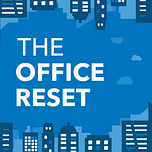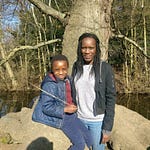Those that are advanced in their careers might not be too concerned about hindering their career progression by working remotely. For young professionals - it is a different story. Some who have already tried it regret the experience deeply, saying it “destroyed their career” due to a lack of mentorship and reduced opportunities for connection.
But in the current climate, many don’t have a choice in the matter and companies are also responding. Earlier this year, a number of top law firms, consultancies and investment banks made their internships virtual - leading to mixed reviews from the interns who participated. While the work-related stuff somehow worked online - the social side was a bit strange.
As reported in The Telegraph, according to one intern:
Cringey is the best word to describe [the social events]. They tried to make it as interactive as they could but there are just limitations. The whole Zoom thing is just a bit awkward.
Despite this, most of the interns recognised the effort put into making the programmes virtually accessible. With many companies cancelling their internship programmes and even rescinding job offers - most interns are just grateful to still be able to gain some form of experience.
As remote work continues to become the new ‘norm’ for young professionals (many of whom are struggling to concentrate from cramped house-shares and noisy housemates) - is this going to hurt their career prospects in the long-run?
Rowena Hennigan, a remote work expert, says it is totally possible to make remote working work for young professionals - as long as they are intentional about it. Rowena has been working remotely since 2007 and is the co-author of a new module called “Future of Work (Remote Working Skills”) at The Technological University of Dublin.

In this episode, we talk about some of the stumbling blocks for graduates today, the importance of self-awareness and intention in being successful at remote working, investing in crucial skills and how to network virtually.
Highlights
The importance of investing in developing crucial skills at school and university to prepare for remote working
Rowena’s tips on professionally networking virtually
Why participating in hackathons and virtual internships provide a good glimpse into the working world
Rowena on knowing what you want
Of course there are many graduates who could be thrown into remote working and they will be comfortable with that to a point. But [they need] the awareness of what they might be missing from the office [and the intention long-term to build those personal transferrable skills - like personal networking and in-person public speaking - for example. If that graduate is also more visual and wants to see how the office works - that’s more difficult when you are remote. So I think there needs to be more education when they are in university and even before that.
On the importance of starting early
There is a lot of talk around virtual internships and even secondary school projects where [you get] some work experience. I’m a big advocate [for teens to get an] idea of what virtual collaboration looks like and what the virtual work looks like. Hackathons are a really good window into the world.
On seizing opportunities wherever you can
You have to be more intentional. If you come across someone you really click with in the lobby of a big event, you [would normally] exchange numbers and arrange to go for a coffee. You can do the same thing online but you need to be more intentional.
Recommended reads
Internships go digital, new graduates will hone remote working skills amid pandemic woes
Virtual internships take the buzz out of the City experience
Students find solutions to post-pandemic challenges at virtual hackathon
For young Londoners, working from home is a cramped and dismal experience
You can find more podcast episodes on Apple podcasts, Spotify, and other platforms. If you would like to facilitate a discussion or even send some feedback, you can email me at: theofficereset@gmail.com











Share this post